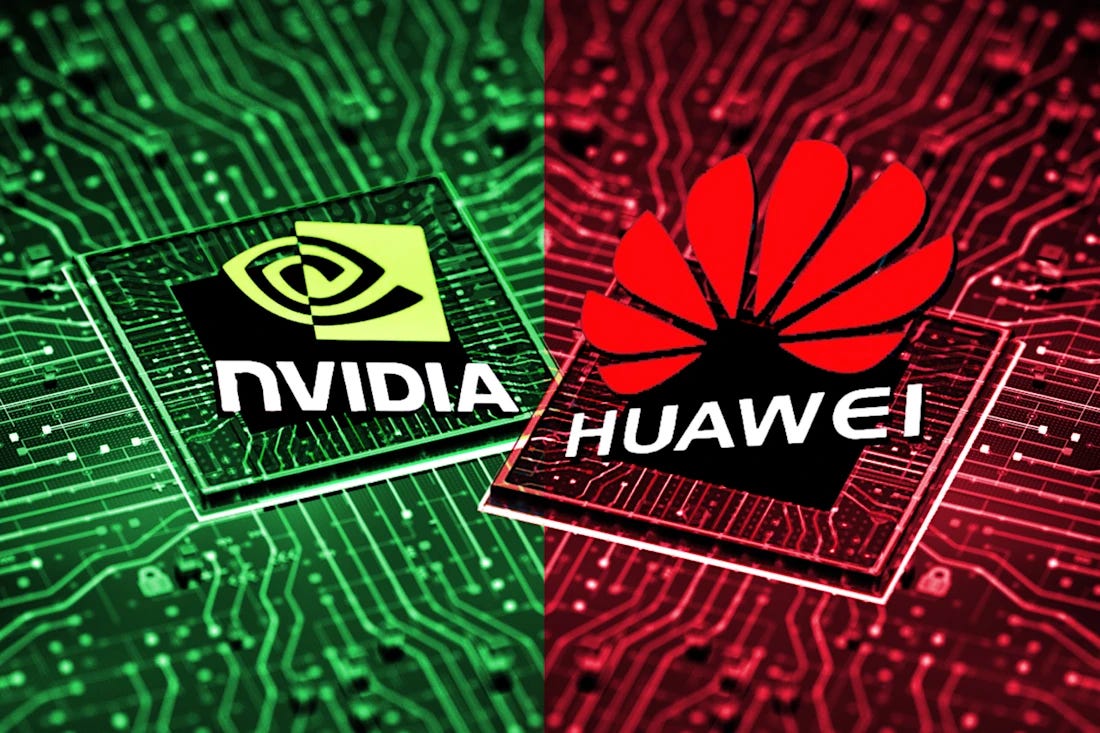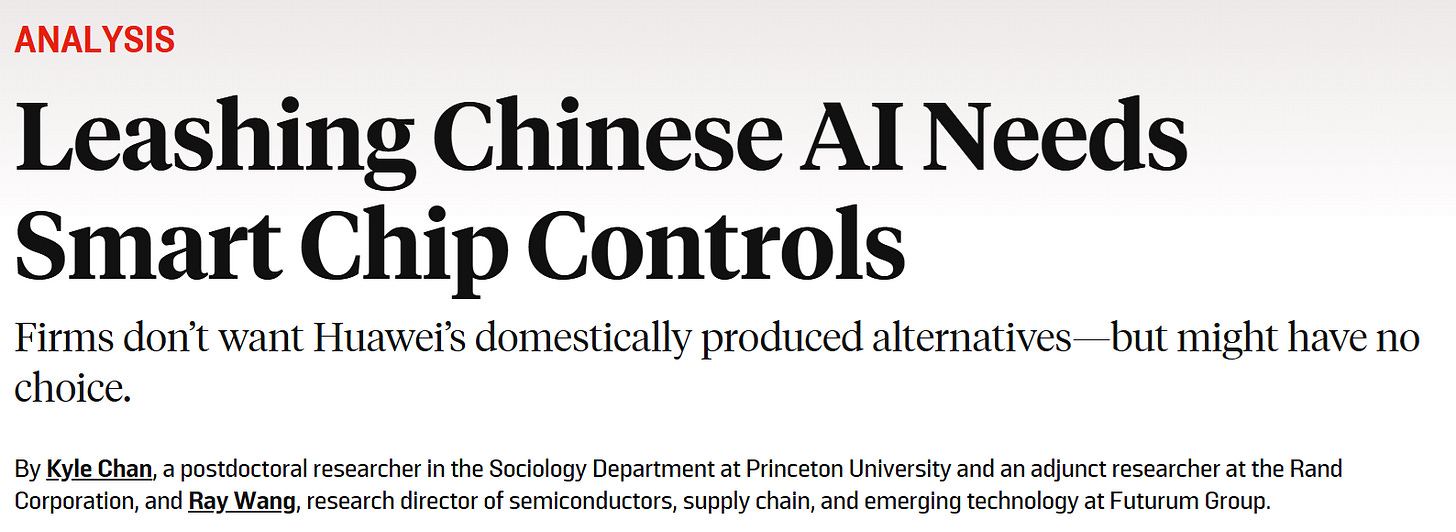A smarter strategy for AI chip export controls to China
In a new Foreign Policy piece, Ray Wang and I argue that Chinese tech firms don't want to use Huawei's AI chips. But export controls on Nvidia's chips could force them to finally switch.

I have a new piece out in Foreign Policy magazine with Ray Wang (Twitter/X: @rwang07), a super smart semiconductor industry and policy expert working at Futurum Group.
Read the full piece here: “Leashing Chinese AI Needs Smart Chip Controls”
We argue that US export controls on AI chips to China may end up helping China’s domestic chipmakers like Huawei if not done carefully.
Currently, many Chinese tech companies don’t want to use Huawei’s AI chips. Instead, they strongly prefer using Nvidia’s chips designed for the China market, even though their performance has been restricted due to US export controls.
It’s not just about hardware performance. Chinese AI developers prefer building with Nvidia’s widely used CUDA software ecosystem rather than Huawei’s far less mature CANN alternative. Also, don’t forget that for Chinese tech companies, Huawei is not just a chip supplier but also a powerful competitor.
But this could all change if export controls degrade Nvidia’s China-bound chips so much that Chinese AI developers are basically forced to switch to Huawei. This will give Huawei what it needs most to succeed: a developer community dedicated to improving Huawei’s hardware-software ecosystem.
Here are some excerpts:
“As Huawei’s AI systems continue to improve, U.S. export control policies must be carefully calibrated to avoid pushing China’s AI industry too far. If China’s domestic AI chips continue to improve, while U.S. chips available in China are further downgraded by export controls, there will be a crossover point where the performance of Chinese chips clearly exceeds that of American chips available in China.”
“The crucial tipping point could be if China’s largest tech companies, such as Alibaba, Tencent, and ByteDance, throw their formidable resources toward working with Chinese AI chipmakers. This would kick off a positive feedback loop for China’s AI chipmakers, particularly Huawei, building up the software libraries and tools for creating a complete Chinese AI hardware-software ecosystem. Once this process is underway, it would also mark a point of no return for American AI chipmakers like Nvidia in the China market.”
“Semiconductor export controls are not as simple as tightening the valve on a tap. China’s AI chip dilemma is not just a hardware problem but an ecosystem one. Huawei now has access to many of the key resources it needs to develop advanced AI chips, including financing and talent. But it’s missing a large and dedicated customer base that is committed to co-refining the software and hardware Huawei offers.”
“A smart approach to export controls would focus on setting a performance threshold for AI chips that can be sold to China based on a window between U.S. and Chinese hardware capabilities. The performance threshold should be high enough to outperform China’s domestic hardware options to ensure Chinese developers remain on U.S. platforms. At the same time, it should be low enough to maintain a significant performance gap with hardware systems available to American developers.”
Read the full piece here: “Leashing Chinese AI Needs Smart Chip Controls”





I’m confused. How is this different from what the US is already doing?
on what basis are you making the assertion Chinese developers prefer the watered down Nvidia chips over Huawei Ascend chips, other than Haiwei might be a competitor? Do you assume Chinese developers are not smart enough to realize Nvidia chips can be cut off anytime at the whim of the regime or there is geofencing backdoors and remote kill switch already or potentially embedded in these chips? The whole reasonsing is one sided and premised on your being smarter than the other side. Good luck.